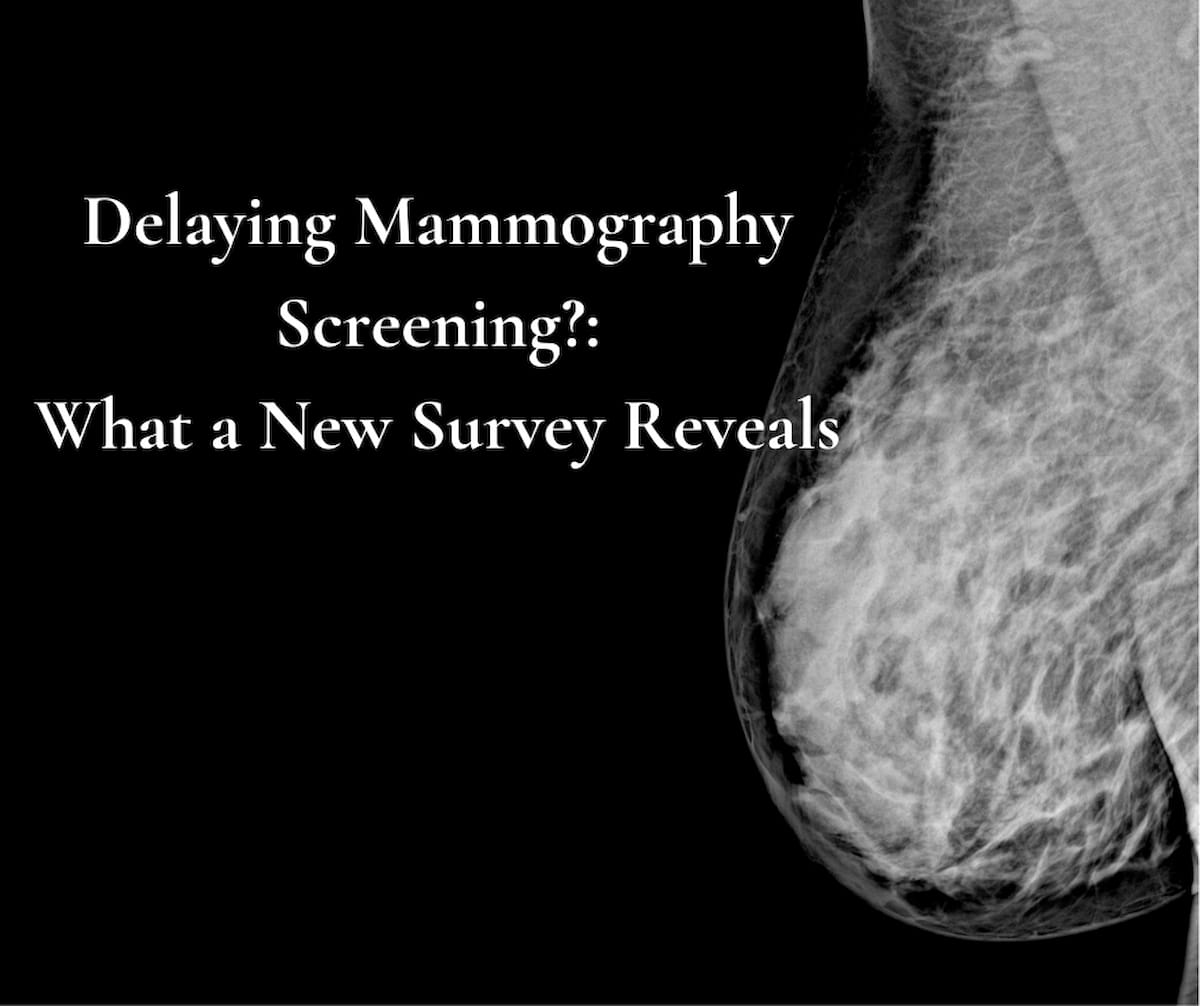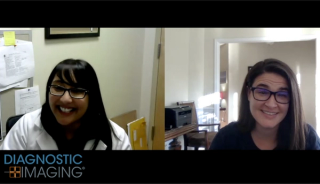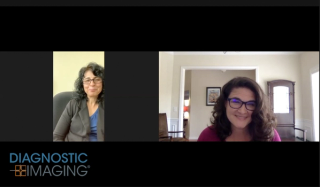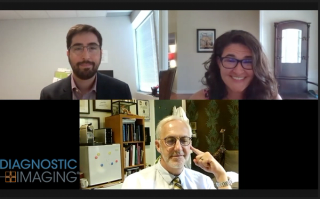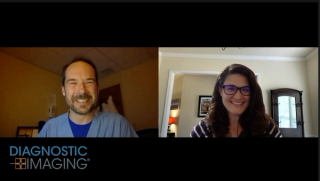
Mammography
Latest News
Latest Videos

CME Content
More News

Catch up on the top radiology content of the past week.
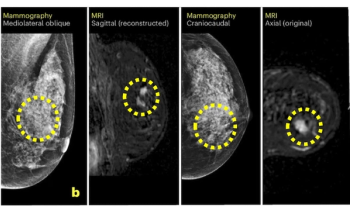
Can AI Facilitate Effective Triage for Supplemental Breast MRI After Negative Mammography Screening?
The AISmartDensity software facilitated a cancer detection rate (CDR) with breast MRI that was nearly four times higher than the CDR previously reported in trials involving traditional breast density assessment.

Catch up on the top radiology content of the past week.
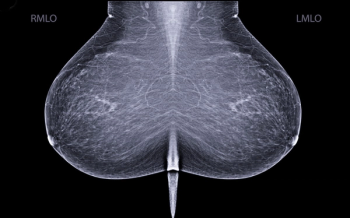
The combination of mammography with breast MRI within 90 days had a 96.2 percent sensitivity in comparison to 48.1 percent for mammography and 79.7 percent for breast MRI performed within 91 to 270 days after index mammography, according to newly published research.
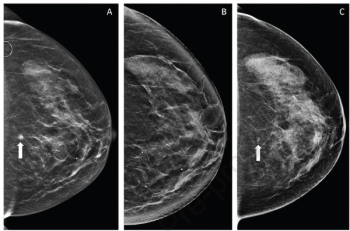
Noting significant variation with facilities for achieving passing criteria for mammography positioning, researchers found that structured interventions, ranging from weekly auditing of images taken by technologists to mechanisms for feedback from radiologists to technologists, led to significant improvements in a multicenter study.
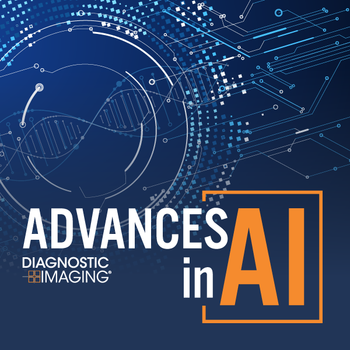
Catch up on the top AI-related news and research in radiology over the past month.

Catch up on the top radiology content of the past week.
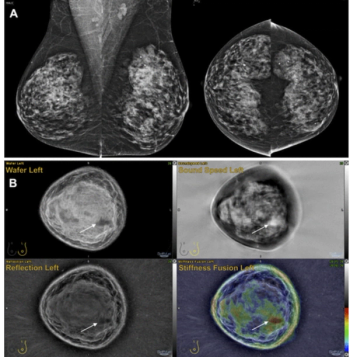
Emerging research suggests that combining full-field digital mammography and whole-breast ultrasound tomography provides superior sensitivity in detecting BI-RADS 4 lesions and superior specificity in diagnosing BI-RADS 3 lesions than mammography alone in women with dense breasts.

Catch up on the top radiology content of the past week.
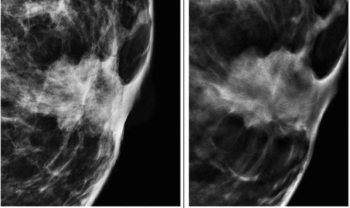
In a study of asymptomatic women at elevated risk for breast cancer, digital breast tomosynthesis (DBT) demonstrated equivalent sensitivity to full-field digital mammography (FFDM) for three out of four reviewing radiologists and detected no additional cancers beyond those detected with FFDM.
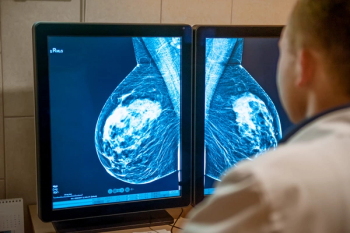
Offering comparable sensitivity to radiologists for detecting contralateral breast cancer on mammography images, an emerging adjunctive AI software may also facilitate earlier diagnosis, according to study findings presented at the at the 2024 American Society of Clinical Oncology (ASCO) Annual Meeting.
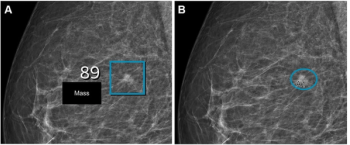
In a retrospective study involving nearly 119,000 women, researchers found that implementation of AI into mammography screening increased the positive predictive value by 11 percent, increased small cancer detection by 8.3 percent and reduced reading workload by approximately 33 percent.
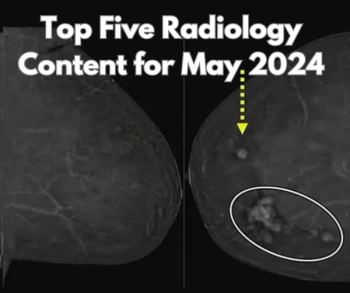
Catch up on the most-well viewed radiology content in May 2024.

Catch up on the top radiology content of the past week.

Catch up on the top AI-related news and research in radiology over the past month.
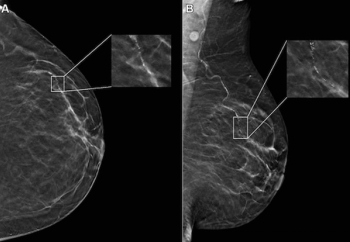
Researchers also noted that mammography-based AI software was associated with over a threefold higher likelihood of false-positive risk scores in patients 61 to 70 years of age in comparison to women 51 to 60 years of age.

Catch up on the top radiology content of the past week.

In recognition of National Women’s Health Month, Dana Bonaminio, MD, Amy Patel, MD, and Stacy Smith-Foley, MD, shared their thoughts and perspectives on the recently updated breast cancer screening recommendations from the United States Preventive Services Task Force (USPSTF).

Catch up on the top radiology content of the past week.
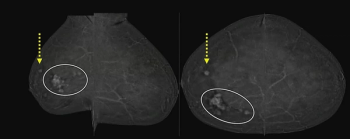
In a recent lecture at the 2024 ARRS Annual Meeting, Jordana Phillips, MD, discussed the role of contrast-enhanced mammography in staging breast cancer, evaluating response to neoadjuvant chemotherapy and recalls from screening.
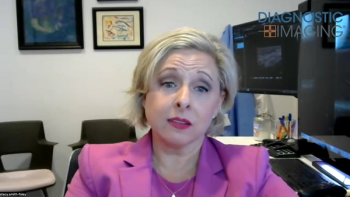
In a recent interview, Stacy Smith-Foley, M.D., shared her perspective on the shortcomings of the recently issued breast cancer screening recommendations from the United States Preventive Services Task Force (USPSTF).

The presence of fat-enlarged axillary lymph nodes on mammography screening exams is associated with a fourfold higher risk of type 2 diabetes and a 2.6-fold higher risk for cardiovascular disease, according to new research presented at the ARRS Annual Meeting.

Catch up on the top radiology content of the past week.
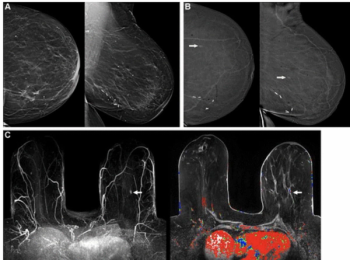
For over 1,200 women with a previous history of breast cancer, interim findings from a prospective trial suggest that adding contrast-enhanced mammography (CEM) to digital breast tomosynthesis (DBT) enhances detection of second malignancies with a limited increase in recalls.
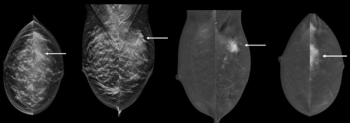
The 10-study meta-analysis demonstrated that contrast-enhanced mammography has a 95 percent sensitivity rate and an 81 percent specificity rate for diagnosing suspicious lesions in women with dense breasts.




